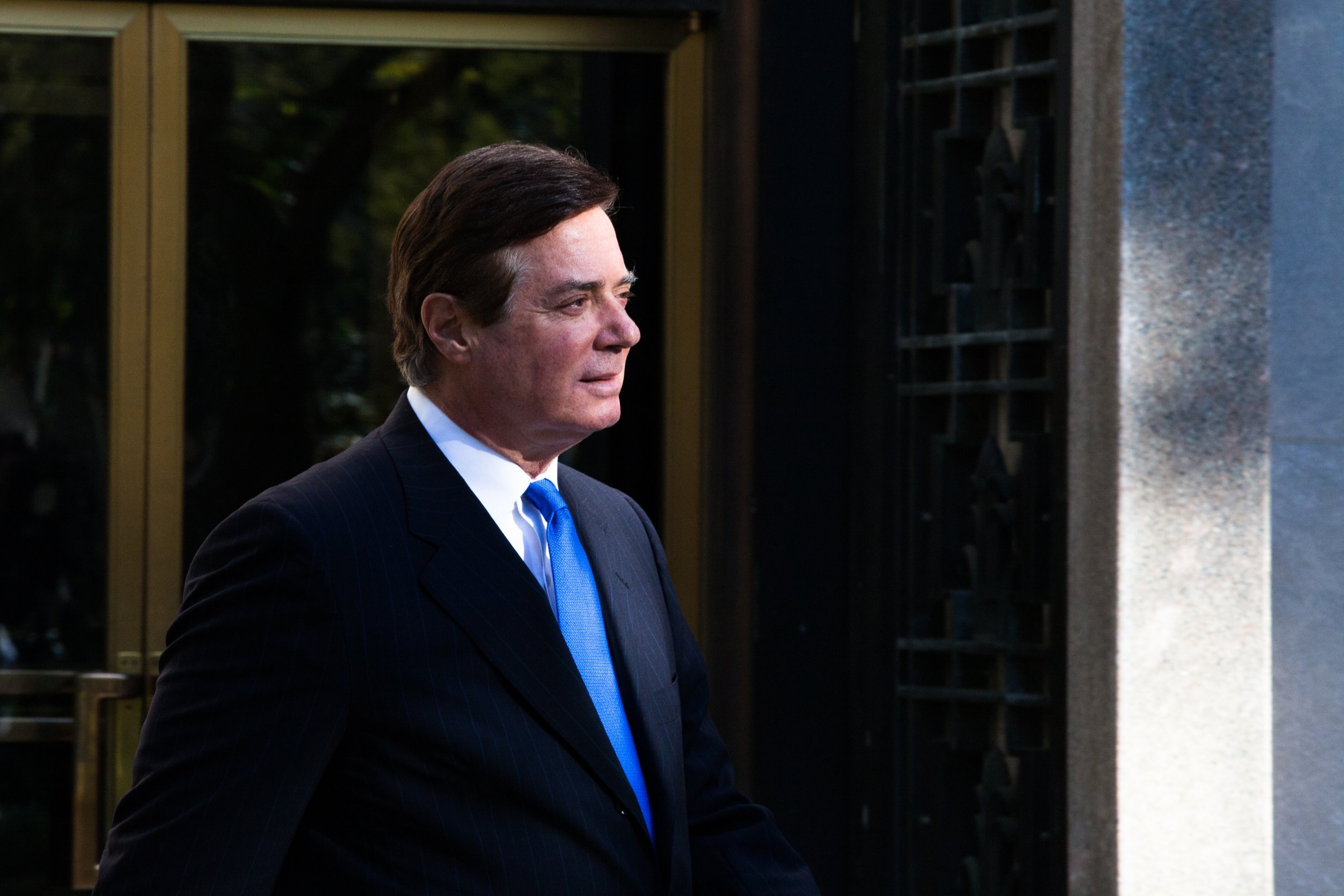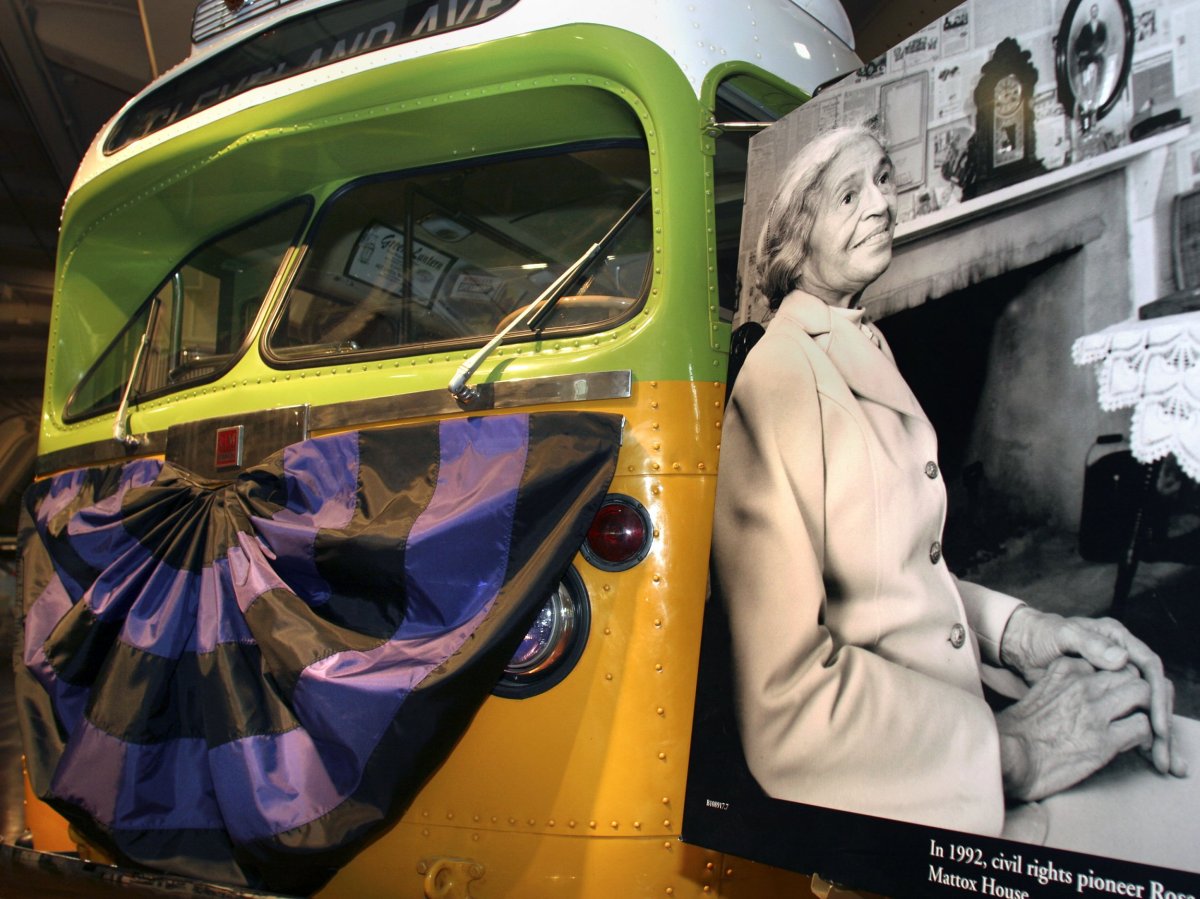
It's an ugly chapter in Alabama history, during a decade that would begin a march to freedom for its African-American citizens.
It's also a cautionary tale about political power run amok—one that CNN, Politico, The New York Times and their media pals should consider given their recent legal efforts to expose the names and addresses of jurors in the Paul Manafort trial.
It turns out the state of Alabama's ruling political class was in a bind in 1956. They resisted orders to integrate their schools, which the Supreme Court demanded in its 1956 Brown v Board of Education ruling.
At the same time, bus boycotts were hitting Montgomery hard. These social and legal challenges were hurting the city, and the state too. Enter the state's highest-ranking law enforcement officer to do something about it, and the non-profit civil-rights group causing all the trouble: the NAACP.
"One local NAACP activist, Autherine Lucy, brought the case that desegregated the state university, and another, Rosa Parks, ignited the bus boycott," Bradley Smith, of the Institute for Free Speech, wrote recently.

Alabama's Attorney General John Patterson used his office—and the law itself—to threaten the NAACP's members and sabotage their efforts in Alabama. He used a specious legal argument to make his case, stating that the NAACP's actions were causing economic damage to the state. But the state's chief law enforcement official wasn't done.
Patterson demanded that the NAACP release the names of its local donors, many of whom were white, and rightfully afraid of reprisals from neighbors and the state itself if their names were released. And he hit the NAACP with a $100,000 contempt violation for failing to do so.
Why would the state of Alabama want those names? And why the $100,000 fine? The motivation was clear: crush the balance sheet and revenue funnel of the NAACP. And do it with fear and intimidation, all under the name of transparency and the public good.
The NAACP challenged the state, and in 1958, the U.S. Supreme Court sent a thundering— and unanimous—message.
Justice John Marshall Harlan started his opinion by noting that compelled disclosure of affiliation with groups engaged in advocacy could constitute "an effective restraint on freedom of association."
Then came these words:
Petitioner has made an uncontroverted showing that on past occasions revelation of the identity of its rank-and-file members has exposed these members to economic reprisal, loss of employment, threat of physical coercion, and other manifestations of public hostility. Under these circumstances, we think it apparent that compelled disclosure of petitioner's Alabama membership is likely to affect adversely the ability of petitioner and its members to pursue their collective effort to foster beliefs which they admittedly have the right to advocate, in that it may induce members to withdraw from the Association and dissuade others from joining it because of fear of exposure of their beliefs shown through their associations and of the consequences of this exposure.
That's a fancy way of stating the obvious: When the state starts asking questions about such things, they're up to no good.
Last week, CNN and other mainstream media outlets filed a motion in federal court requesting the release of the names and addresses of all jurors in the Paul Manafort fraud case. Jurors had not yet rendered a verdict in the case.
U.S. District Judge T.S. Ellis III denied the motion, expressing his concern for the peace and safety of the jurors. "I've received criticism and threats,'' Ellis said. ''I imagine they would, too.''
The judge ruled, but why did CNN and others want those names? And home addresses? What public good were they trying to serve?
To understand the ethics involved in the matter, one need only check in with The Reporters Committee For The Freedom of the Press – a non-profit dedicated to assisting journalists since 1970 – for answers. At their website, there is a guidance sheet called "Identifying the jury," designed long before the Manafort trial.
"According to Gayle C. Sproul, a partner at the law firm Levine Sullivan Koch and Schulz, 'judges are very protective of jurors' and their personal privacy,'" the guidance sheet notes. "Additionally, citing the potential of jury tampering, courts often worry that disclosing juror names during proceedings will interfere with the accused's Sixth Amendment right to a fair trial."
Seems right to anyone with a sense of fairness. Did CNN and their media allies heed RCFP's cautionary advice when they filed their motion?
The entry included some exceptions to not outing jurors, including the possibility of bribery. But there was general agreement against such disclosure.
The RCFP's guidance was straightforward. "Because jurors do not volunteer for their roles, many journalists question whether they should be thrust into the limelight," the website noted. "Both before and after a verdict is rendered, most newsrooms err on the side of caution when making these decisions."
The source for that guidance was Al Tompkins, a senior faculty member The Poynter Institute—itself a premier journalism advocacy and ethics organization.
Then came the money paragraph from RCFP's guidance: "Generally, there is a policy against publishing juror names," Tompkins added. "Among journalists, there genuinely is the feeling that there is no good, compelling reason to identify these people."
And so the question must be asked: Why demand juror names in this trial? And why neglect the guidance of RCFP and the Poynter Institute?
Is it because CNN has a political ax to grind, and a vested interest in the outcome of the case? CNN's resident legal analyst Jeffrey Toobin, who said he would be "shocked" if Manafort went to trial back in February of this year, has already convicted the defendant in his most recent live commentary.
What about the liberal leaning Washington Post, New York Times and Politico? No conservative news outlet joined in the suit to name juror's names.
If Manafort is acquitted, the public might begin to question the Mueller team's legitimacy, given that the Manafort charge had nothing to do with the original scope of his investigation. It might prompt new collusion questions: the one between the media and the lawyers prosecuting the case against President Trump and his campaign aides.
Is a special prosecutor beyond reproach—and scrutiny—after two years of investigations?
The American people deserve answers from CNN and their media pals.
Do you believe in outing jurors in high profile public cases?
If so, how do you choose them? And how will such decisions affect free and fair trials in the future?
Is it right for prosecutors to go after campaign staffers for violations during the campaign, only to dig into staffer tax files from years and even decades before their campaign work?
Not many Americans will serve on tough public trials if they fear retribution by a partisan, political press showing up at their homes and places of business.
And Americans, after watching the Manafort trial, might fear working on political campaigns. And rightfully worry about the prospect of some special prosecutor hounding them with unlimited charging power, with the same hungry press at their heels, eager for a conviction.
Any kind of conviction at all.
Uncommon Knowledge
Newsweek is committed to challenging conventional wisdom and finding connections in the search for common ground.
Newsweek is committed to challenging conventional wisdom and finding connections in the search for common ground.
About the writer
To read how Newsweek uses AI as a newsroom tool, Click here.








